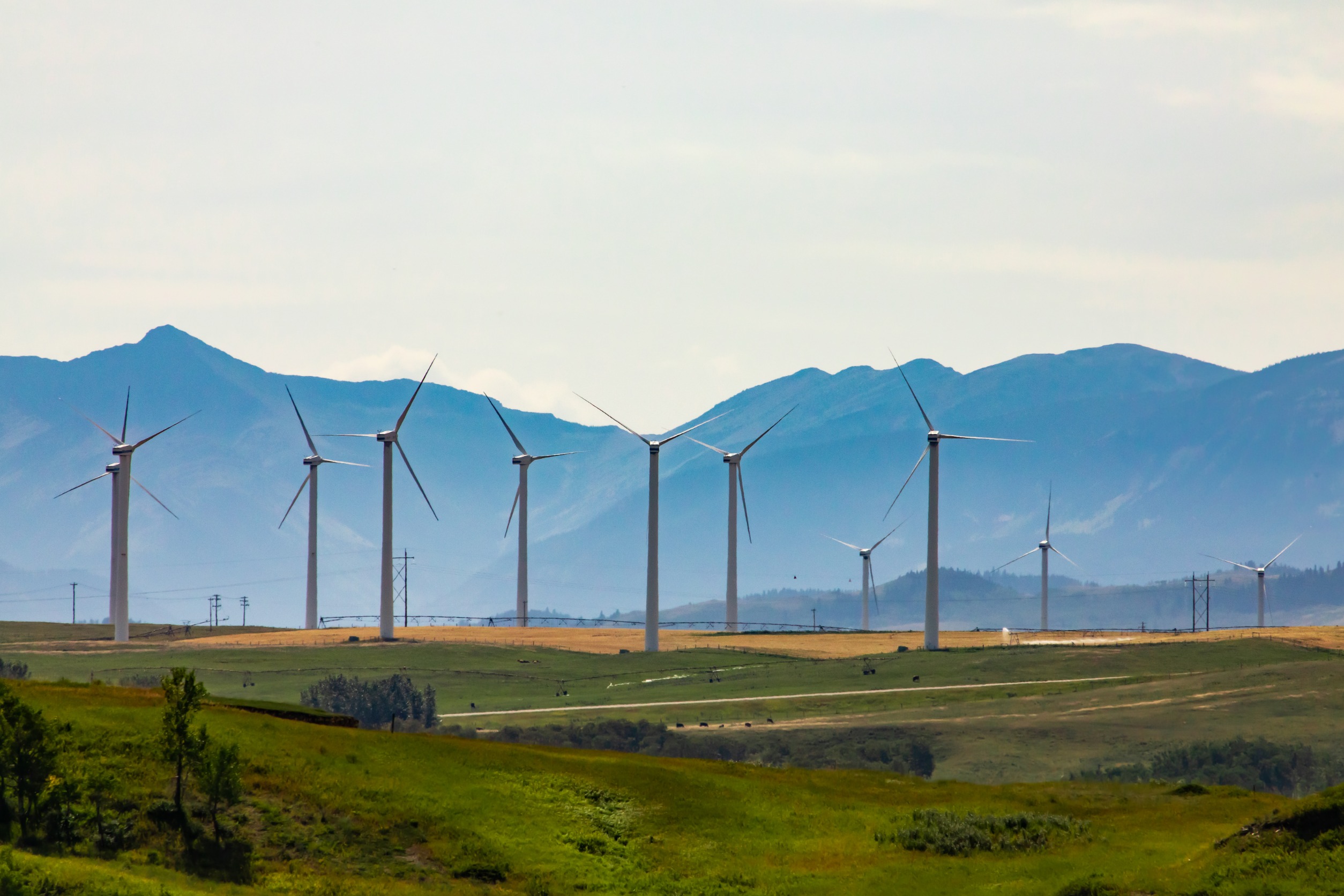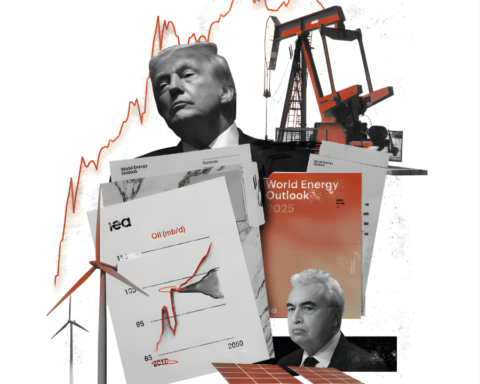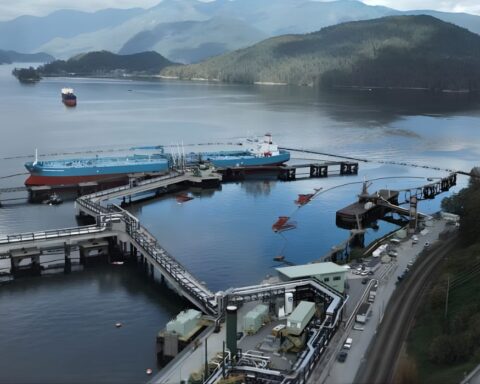As Alberta reels from wildfires that have destroyed swaths of Jasper National Park, new data is showcasing the losses inflicted by the province’s moratorium on renewable-energy projects.
One year after the provincial government imposed a seven-month halt on new solar, wind, hydro, biomass and geothermal ventures, a report from environmental think tank the Pembina Institute reveals that 53 projects were cancelled, representing more than 8,600 megawatts of power-generating capacity. Of those cancellations, 33 projects were already in the development queue at the time of the announcement and could have produced enough energy to power almost all Albertan homes, the study found. An additional 20 projects were part of a flood of developments that surged immediately after the announcement, in the hopes of being grandfathered in under the old rules. That interest has since plummeted, the researchers say.
“It appears that the moratorium created sufficient uncertainty in the renewable energy sector even after it formally ended in February 2024 that new applications have, for now, reached a standstill,” the Pembina report authors note.
The 53 cancelled projects would have drawn in some $91 million in tax revenues. Meanwhile, Alberta cities that already had renewable projects functioning have seen the taxes they collect double over the last year, from $28 million to $54 million, according to Business Renewables Centre-Canada (BRC-Canada), a subsidiary of Pembina. For five communities, these proceeds constitute 20% to 30% of their total annual operating revenues. “This revenue is reliable, stable income that communities can plan around for decades to come,” Jorden Dye, director of BRC-Canada said in a statement.
The Alberta government dismissed the report as one that “intentionally misconstrues the facts.” Nathan Neudorf, Alberta’s minister of affordability and utilities, said, “The Pembina Institute is ignoring the reality that not every proposed energy project leads to shovels in the ground.”
According to the Pembina report, three of the 118 projects that were under development at the time of the moratorium have since been approved and another 20 are “advancing.”
“What we have in truth is a growing queue for energy projects, not a shrinking one,” Neudorf said in a statement to the Canadian Press. “Alberta continues to be a leader in renewable energy and jurisdiction of choice for investors.”
Alberta imposed the moratorium August 3, 2023, officially citing “concerns raised from municipalities and landowners related to responsible land use and the rapid pace of renewables development.” But the unexpected move, in a province where renewables were taking off, reflected an ongoing battle with the federal government over climate policy and energy. At the time, Premier Danielle Smith blamed Ottawa for thwarting the natural gas development that she argued would be needed to keep a renewables grid humming. Experts have said that such a backup is not necessary.
The Alberta government lifted the ban in February of this year and released rules around how renewables could proceed. For example, renewable projects are no longer permitted on Class 1 and 2 agricultural lands unless the project can coexist with farming, and areas designated as “pristine viewscapes” must have a 35-kilometre buffer for new wind projects. However, the Pembina Institute says that the government has yet to provide an official map outlining where new projects might be approved.
RELATED:
- Alberta led the nation in wind and solar growth, so why is it calling for a moratorium?
- Alberta risks billions in renewable investments with new development rules
- 3 ways to get Alberta on board with a ‘just transition’
Alberta’s approach contrasts with that of similar jurisdictions such as Ontario, which after cancelling renewable contracts five years ago is once again pursuing wind and solar projects to help bridge its power gap. South of the border, red states have been leading in wind and solar development in the U.S. in recent years, although the upcoming presidential election has thrown new uncertainty into the mix.
The International Energy Agency predicts that more than $2 trillion will be invested in renewables around the world this year.
“The Alberta government’s efforts to stunt the growth of the most promising renewable energy market in the country has been a deeply regrettable success,” noted Stephen Legault, with Environmental Defence, in a statement.
At the same time, Alberta is forecasting continued growth in its oil and gas sector, with higher prices and increased access through the Trans Mountain pipeline system.







